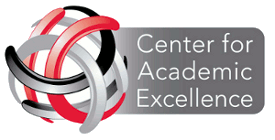Ethics at Breakfast: A University-Community Collaboration
Location
Dolan School of Business Dining Room (104A)
Start Date
30-5-2013 5:15 PM
End Date
30-5-2013 6:30 PM
Session Type
Poster Presentation
Description
This poster session describes a partnership between Fairfield University's Program in Applied Ethics and the Rotary Club of Fairfield, in which they designed and led ethics breakfast programs at the University Bookstore. This poster session will describe two elements of the ethics programs: 1) The epistemological underpinnings of the collaborative approach to the design and development of the workshops; and, 2) The practical steps for identifying the workshop participants and working with them to facilitate a collaborative exchange. I believe this session’s chief strength lies in its correlation of philosophy and practice: It will show how certain epistemological commitments translate into specific practical steps to organize people with diverse perspectives for a successful collaborate public discussion. This poster session will describe these details from the Rotary-University collaboration: identifying ideas and speakers, developing a program agenda, and facilitating the discussion. It will emphasize practical implications of the underlying philosophical ideas.
Topic Designation
Teaching & Learning
Presenter Bio(s)
David Schmidt is Associate Professor of Business Ethics and Director of the Program in Applied Ethics at Fairfield University. He has over 25 years' experience in designing and facilitating collaborative educational and training programs.
Ethics at Breakfast: A University-Community Collaboration
Dolan School of Business Dining Room (104A)
This poster session describes a partnership between Fairfield University's Program in Applied Ethics and the Rotary Club of Fairfield, in which they designed and led ethics breakfast programs at the University Bookstore. This poster session will describe two elements of the ethics programs: 1) The epistemological underpinnings of the collaborative approach to the design and development of the workshops; and, 2) The practical steps for identifying the workshop participants and working with them to facilitate a collaborative exchange. I believe this session’s chief strength lies in its correlation of philosophy and practice: It will show how certain epistemological commitments translate into specific practical steps to organize people with diverse perspectives for a successful collaborate public discussion. This poster session will describe these details from the Rotary-University collaboration: identifying ideas and speakers, developing a program agenda, and facilitating the discussion. It will emphasize practical implications of the underlying philosophical ideas.


